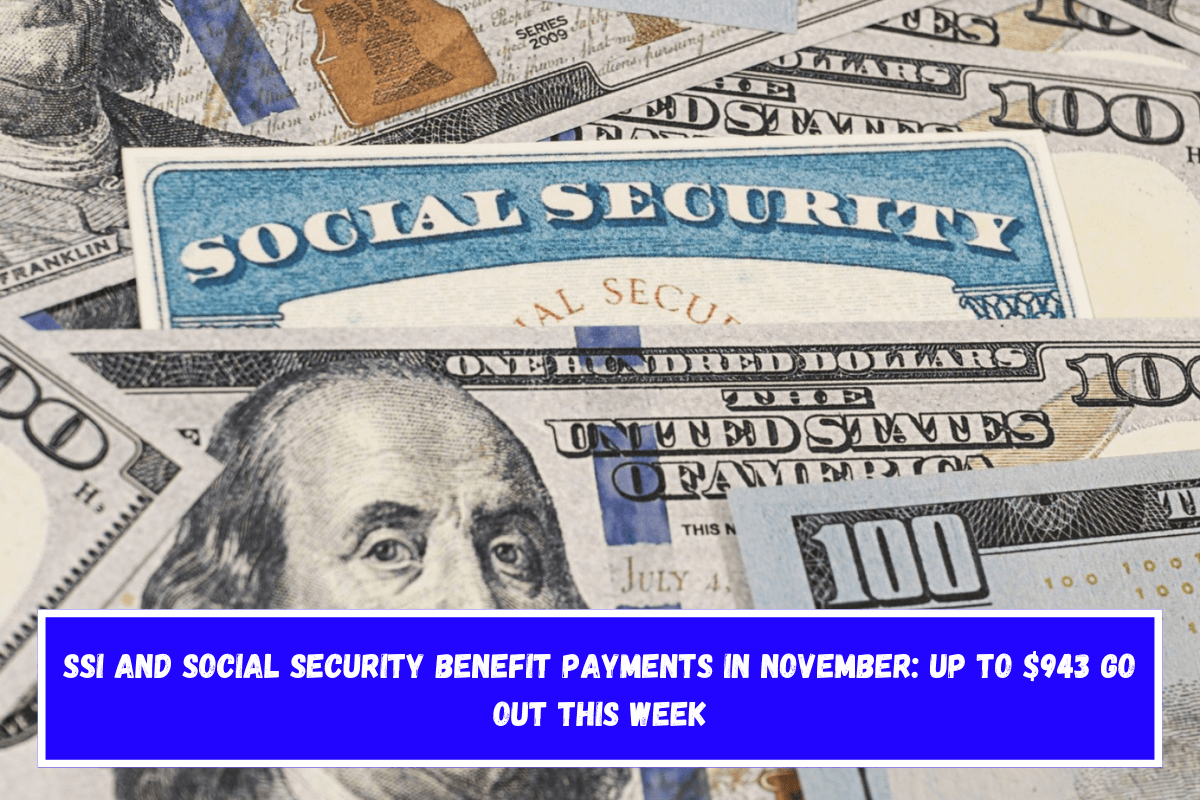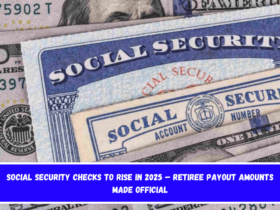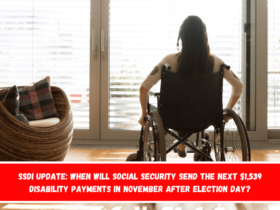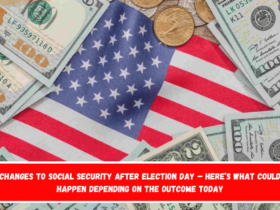The Social Security Administration (SSA) will send checks to millions of people across the United States this Friday, November 1. The people who get the money are SSI recipients and retirees who applied for their benefits before May 1997. The payments will be sent directly to the beneficiaries’ bank accounts, so they can get their monthly income quickly and safely.
SSI is a federal program that helps people over 65 and adults and children with disabilities or who are blind by giving them money every month. About 7.4 million people got help from SSI in June 2024. SSI recipients will get two payments this month because the dates of December’s payments had to be changed.
When you’ll receive your next SSI and other Social Security benefits
The November SSI payment will be sent out on November 1, which is also the first deposit of the month for people who get help with retirement or a disability. The second SSI payment for the month will also be moved up to November 29 because December 1 is a weekend.
This adjustment ensures beneficiaries receive their money on time but does not represent an additional payment; it’s simply a calendar adjustment to align with standard payout practices.
Payment will also be sent on November 1 to people who started getting their retirement benefits before May 1997. But retirees who started getting benefits after that date will get payments spread out over time based on when they were born.
This organized way of setting payment dates—births that happen early in the month get paid in the first week, etc.—keeps the system from getting too busy and makes sure that money gets to the right people more quickly.
Rumors about stimulus checks and their impact on the public
In recent months, there have been a lot of rumors on social media about the possibility of more stimulus checks. This has made people more hopeful. Because of inflation and rising costs of living, a lot of people would love a direct cash boost to help them out. It’s important to note, though, that the IRS or any other government agency has not yet confirmed that there will be a new stimulus check.
During times of economic uncertainty, these rumors can spread very quickly, especially since a lot of Americans want stimulus money. Some people are worried about the possible long-term effects of these kinds of payments, even though most people agree with them.
Some experts think that stimulus checks could cause inflation and add to the national debt, even though they help right away. Because of this, policymakers are still arguing about whether these kinds of financial interventions are good or bad for the long term.

Protecting yourself from economic aid rumors and scams
Many older adults depend on fixed incomes, making them more likely to believe rumors about money-saving programs like stimulus checks. People who are interested in getting money may act quickly and based on false information, which leaves them open to scams that could cause them to lose their money or identity.
It is very important for older people to find accurate information about any kind of financial help. The best way for them to protect their money and make sure they are eligible for any benefits they may be able to get is to check with official sources and well-known organizations.
Not only does staying informed help stop fraud, but it also makes it easier to understand how economic aid programs work, which gives people who receive them more confidence in their ability to manage their money.
How misinformation impacts emotional well-being
It can be hard to deal with the spread of rumors about stimulus checks, especially when the cost of living is high. People who are having trouble with money might get excited about getting help right away, only to be let down and angry when the information turns out to be false. When you find out that this news isn’t true, it can be very disappointing and make you feel like there is no hope.
It is very important for your mental health to make financial decisions based on facts. It’s best to always check rumors or news about financial aid through official SSA and IRS websites, which are reliable and easy to get to.
Trusting information that hasn’t been confirmed can cause unnecessary stress. The best way to avoid false expectations and make sure that any help you need gets to you safely and quickly is to stay informed.
Read Also :- Six U.S. states distribute stimulus checks: you only need to meet one requirement











Leave a Reply